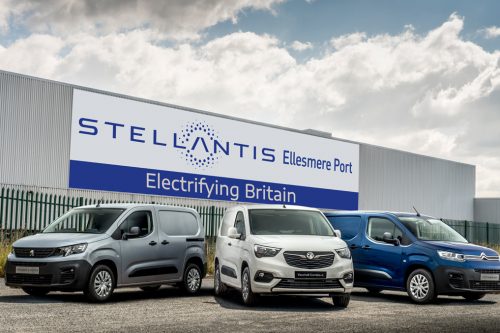Car maker warns it could shut its Ellesmere Port factory over electric vehicle quotas

More than 1,000 car making jobs are at risk at the Stellantis site in Ellesmere Port after it warned it could stop its UK production entirely due to rules over electric car production.
The site has switched from making the traditional Vauxhall Astra model to a new range of electric vehicle (EV) vans following a £100m investment, including £30m from the Government, in July 2021.
The group’s managing director, Maria Grazia Davino, said at an industry event yesterday (June 25): “Stellantis production in the UK could stop,” Sky News reported.
Stellantis manufactures vans at Ellesmere Port and has plans to make electric vehicles in Luton, Bedfordshire, from 2025.
But rules around electric vehicle (EV) production could lead to the group pulling out of the UK, Ms Grazia Davino warned.
Consumer demand for EVs is currently low, and if more aren’t bought, manufacturers will be in breach of UK regulations.
The law states that fully electric cars, and not hybrids, must make up 22% of all manufacturers’ sales.
According to the latest Society of Motor Manufacturers and Traders figures, just 16% of sales are EVs.
“The fact is that demand is not there,” Ms Grazia Davino said.
Producers face fines of £15,000 per non-EV sold, which is much stricter than European Union rules which allow hybrids as well as EVs to count in CO2 emissions reduction targets.
Ms Grazia Davino said Stellantis will decide on whether or not to end UK production in “less than a year”.
She added: “Let me be clear, I want to keep the production in the UK.”
The motor manufacturer, along with others, wants financial incentives to encourage consumers to buy EVs and the charging infrastructure.
While there is tax relief for businesses buying EVs, there are currently no subsidies for consumers.
Ms Grazia Davino said Stellantis might opt to curtail sales by importing fewer fossil-fuel models into the UK as a way of meeting the target.
In May this year, Stellantis again warned it could opt out of producing cars in the UK due to onerous Brexit regulations.
In a submission to a Parliamentary committee’s inquiry on EV production, it warned it was no longer able to meet Brexit trade rules on where parts are sourced, due to the lack of UK-based battery manufacturers.
It said its commitment, two years ago to its UK operations was based on meeting the strict terms of the deal that 45% of the value of EVs should originate in the EU or UK from 2024 to qualify for trade without tariffs.
Stellantis called for that date to be extended to 2027 or “trade between the UK and EU would be subject to 10% tariffs”, it said.
It told the committee that this would put its UK plants at a “competitive disadvantage”.
It added: “This is a threat to our export business and the sustainability of our UK manufacturing operations.
“To reinforce the sustainability of our manufacturing plants in the UK, the UK must consider its trading arrangements with Europe.”








